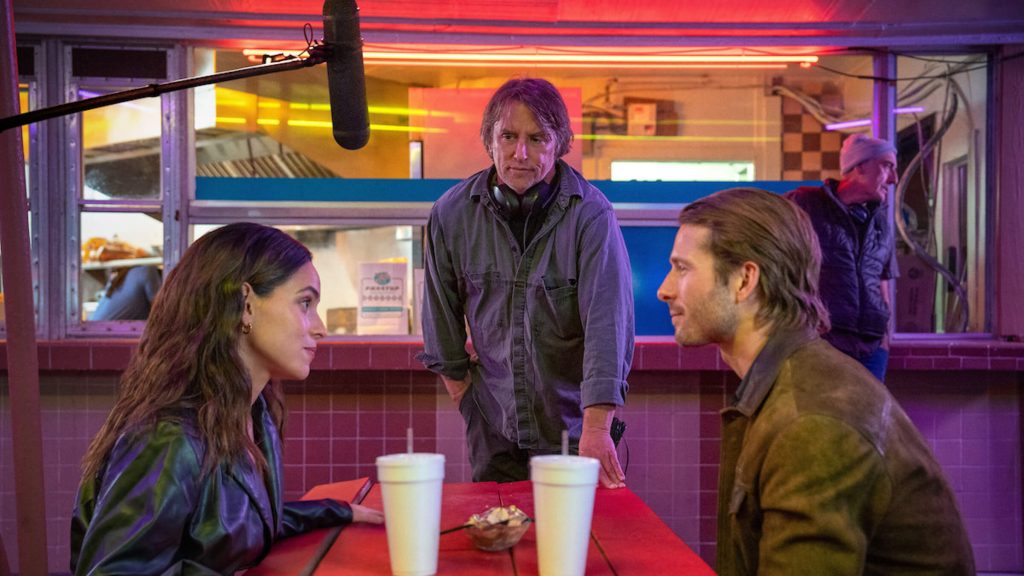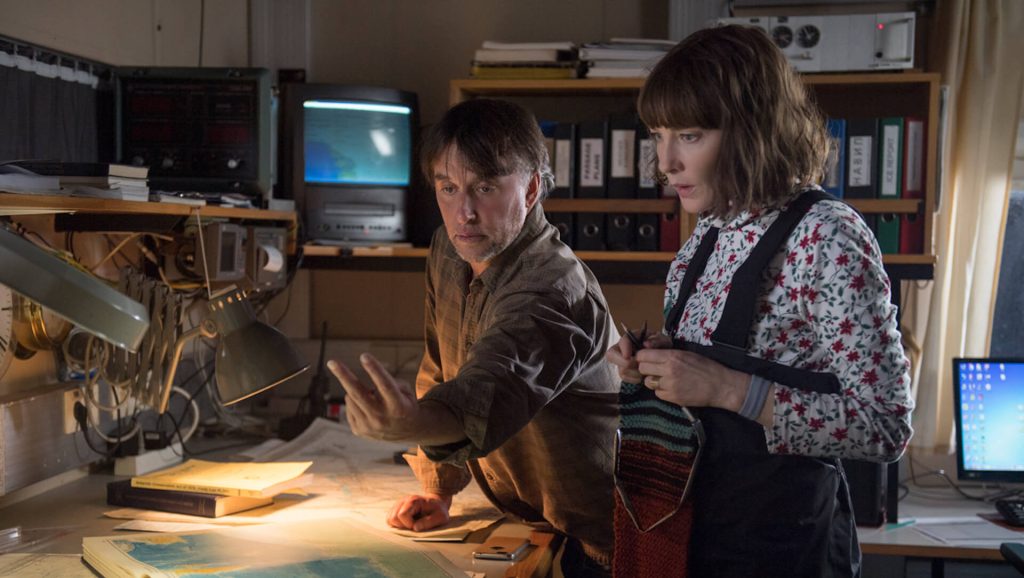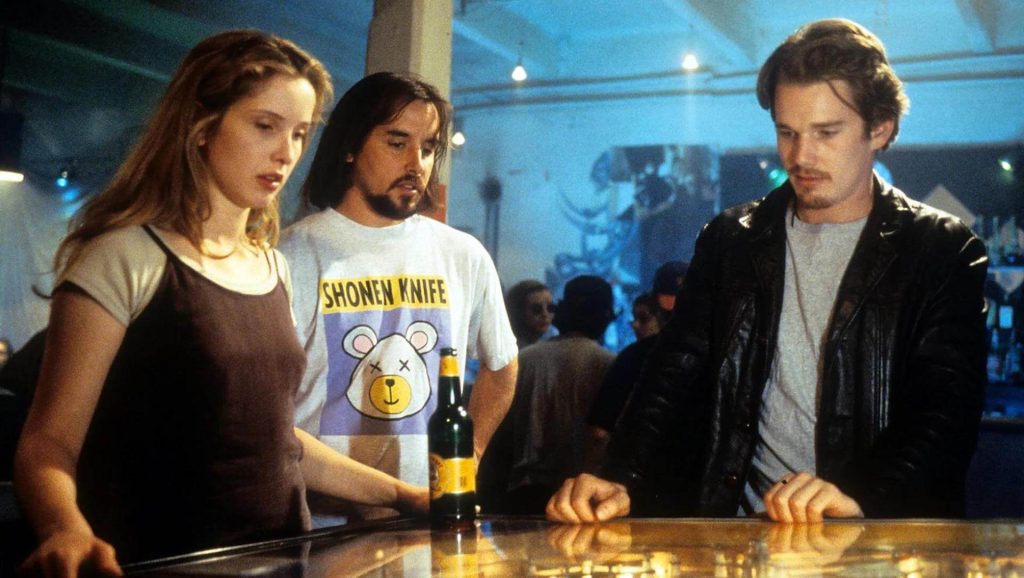Richard Linklater is truly an independent filmmaker. Famous for his experimental style and do-it-yourself spirit, his most acclaimed films include the Before Trilogy (1995-2013), three films starring Ethan Hawke and Julie Delpy that are considered some of the best pieces of screenwriting of all time, and the Academy Award-nominated Boyhood (2014), a coming-of-age drama that Linklater filmed over 12 years to depict the actual passage of time in lead actor Ellar Coltrane’s life.
Screenwriters can learn so much from watching his films and observing his career trajectory. So, let’s go over some lessons Linklater’s work can teach us!
Experimentation Is the Key to Creativity
Linklater is no stranger to cinematic experimentation — hello, Boyhood — but you don’t have to film your actors every year for decades to push the boundaries of the craft. Think about this: Linklater is known for his dramatic films, but his latest film, Hit Man (2023), is an action comedy, a completely unexpected genre for the writer/director. He doesn’t allow our expectations to define the projects and stories he creates. Because of that, audiences never know what he might do next.
We chat with Linklater about his newest film at the 2024 ScreenCraft Summit!
Experimenting with different genres, different mediums, and different stories makes any writer grow as a professional. Don’t be afraid to try new things and styles.
Even though Hollywood loves knowing exactly what kind of writer someone is and what genre and types of story they write, there’s a lot to be gained by not restricting yourself to one genre or type of story. You may discover your favorite genre to write is one you haven’t even tried yet. You may come up with your best work by writing something unlike anything else. Keeping the writing process fun and full of discoveries is a guarantee of a strong script.

‘Hit Man’ (2023)
Character and Story Before a Richard Linklater Plot
When it comes to developing his screenplays, Linklater starts with character and finds the inherent structure in the story.
“I think people want to project on it a certain randomness, and that was [part of it],” Linklater said about making Boyhood to Backstage. “But there was a master plan, a trajectory of all the characters—the beginning, middle, end, and where it was going. I’m a big believer in structure and outlines—I know the end before I start.”
He doesn’t use a conventional Hollywood three-act structure but finds the moments that build a story based on character development. The results are films that feel like a slice of life, highlighting the mundane and exploring the humanity of each character. When speaking about his writing process to Time to Write, Linklater said:
“When I write a screenplay, I’ve diagrammed the architecture of the story. There’s really got to be a structure; art demands it. I care more about structure, [and] less about plots. Anything plot-driven feels a little more man-made, more manufactured. I’m always going toward something that’s a little more true to life.”
Although mastering the Hollywood three-act structure seems to be mandatory for up-and-coming screenwriters, Linklater proves a different approach can also create a compelling film.
Understanding the conventions that exist within the industry and choosing which ones to bend to your style can produce great results.
Read More: 8 Sequence Structure: The Best-Kept Screenwriting Secret

‘Where’d You Go, Bernadette’ (2019)
Collaborating the Richard Linklater Way
One of the staples of Linklater’s style is the naturalistic dialogue, often sounding improvised and conversational. This is a product rehearsing and giving the actors freedom to bring their creative input into the process. He is a big believer in the power of rehearsal and has voiced frustration when asked if his films are all improvised.
“On one hand, for all the time I spend writing it’s kind of an insult, but on the other hand, it’s the ultimate compliment,” Linklater told CreativeScreenwriting. “The screenwriter in me is insulted, but the director in me is complimented because I want it to feel real. The only way I know how to do that is to actually have it be very tight and rehearsed for it to feel loose. The actors have to know it and feel it so well, so that’s more of the filmmaking process that brings that out. It does start with words on a page, believe it or not.”
He often collaborates with the actors when it comes to developing screenplays for his films. In the Before Trilogy, actors Julie Delpy and Ethan Hawk are also credited as screenwriters in the two sequels to the breakout hit Before Sunrise (1995). His newest film, Hit Man, was co-written by actor and screenwriter Glen Powell.
The biggest lesson writers can learn from this is the value of working with actors, staging table reads, and getting as much input from other voices as possible. Since actors have to break down a story to embody the characters, their insight is invaluable. The more you work on your dialogue, the less scripted it sounds.

‘Before Sunrise’ (1995)
Build Your Community
You can’t collaborate without a community. Linklater lives in Austin, Texas, and has never lived in Los Angeles. If you are wondering how he has managed to have such an interesting career while being a Hollywood outsider, the answer is the power of community.
Before he was an established filmmaker, Linklater founded the non-profit Austin Film Society as a way to create opportunities for Texas-based filmmakers to build community and further their craft. The Austin Film Society supports filmmakers with grants and other services and also operates Austin Film Studios. Much like in his storytelling, he doesn’t follow the Hollywood structure but builds his own, creating a unique community of artists.
Linklater did not attend film school and has developed his voice and style by making films. He is often called “a self-taught” filmmaker, but he believes that his teachers were the mentors he worked with throughout his early career.
Mentoring is a big part of community building. Everyone can be a mentor at any stage of their career. Support your fellow filmmakers and mentor others who look up to you. Ask for help and find a mentor. You don’t need a lot of experience to help another screenwriter.
Read More: The Importance of Mentorship in Writing Careers
Richard Linklater will be a headline speaker at the ScreenCraft Writers Summit this year. He is scheduled to speak about “Stretching the Narrative Limits of Filmmaking” on June 8th.
Join us at the 2024 ScreenCraft Writers Summit!
June 8th – 29th!
The post 4 Lessons From Richard Linklater for Screenwriters appeared first on ScreenCraft.
Go to Source
Author: Julia Camara

